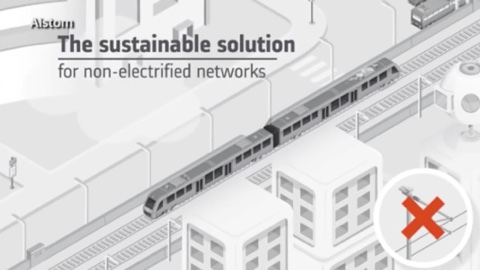
A hydrogen fuel cell, the ideal alternative energy source for rail, is the key to the world’s first “hydrail”. It can travel almost 500 miles per day at speeds of up to 87 mph. It emits steam and water and operates with the lowest noise levels. Developed by Alstom, it consists of a combination of different elements: a clean energy conversion, a flexible energy storage capacity, and smart energy management for the traction power and remaining energy. Although the concept of using hydrogen as a renewable energy source isn’t new, it is the first time that an entire rail network will powered by it.
The German state of Schleswig-Holstein announced its plans to electrify its entire rail network, all 1,100km of it, using hydrail fuel cell equipment by 2025.
“This is the first time in the history of civilization that private individuals with no fiscal interest have, for societal reasons, sparked the change of a major element of the world’s physical infrastructure,” says Stan Thompson, former futurist and strategic planner at American telecommunications company AT&T, and long-term advocate of the use of hydrogen for rail transportation.
Germany, long known for its technological leadership has already had major success in converting traditional energy from coal-fired plants and atomic power to sustainable energy sources such as wind and solar. They were so successful at phasing out the older energy sources that they currently over-produce with the excess energy being stored in a grid.
“Thompson’s calculations, based on a 2007 set of figures from India Rail, estimate that as much as three billion barrels of crude oil – or the equivalent of 214 million tonnes of CO2 – could be saved over one year by transitioning from diesel to hydrail.”
In the development of smart cities, integrating technologies such as those used by Germany, would go a long way toward enhancing the environment, improving quality of life, and providing sustainable energy sources that aren’t reliant on fossil fuels or emitting harmful pollutants.


